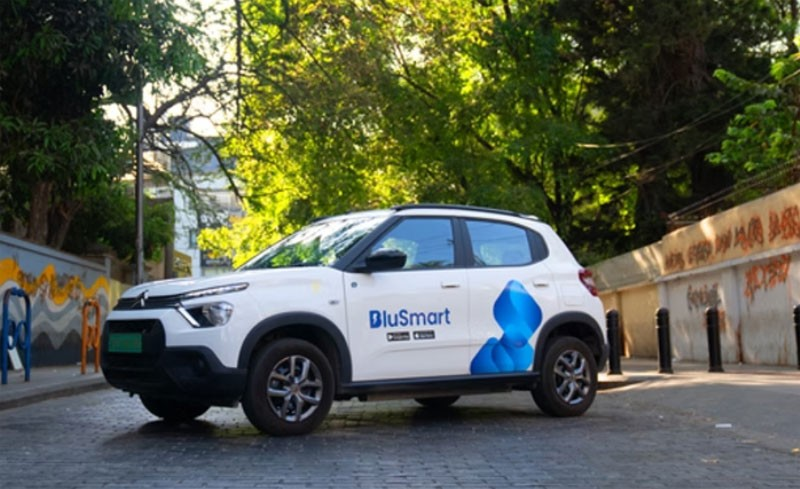
BluSmart’s abrupt shutdown hits Tata, Citroën hard
Tata Motors and French automaker Citroën are facing a major setback following the abrupt suspension of operations by BluSmart, India’s largest all-electric fleet operator, according to a Financial Express report.
The company’s closure has jeopardised more than 9,000 electric vehicles that were yet to be delivered, out of an 18,000-unit commitment.
Over 90% of these pending orders had been placed with Tata and Citroën.
Before winding down its business, BluSmart had built a fleet of 8,500 EVs and aimed to scale that number to 100,000 by 2025.
Its ambitious plans had made it a key customer for EV manufacturers, including MG Motor, BYD, Mahindra & Mahindra, Hyundai, and Audi, alongside Tata and Citroën.
However, with BluSmart exiting the market, manufacturers are staring at excess inventory.
“At this point, we have written off the order,” said an executive at one of the affected OEMs, requesting anonymity. “Furthermore, demand for large-scale fleet acquisitions has all but vanished, especially following the withdrawal of Faster Adoption and Manufacturing of Electric Vehicles (FAME-II) incentives.”
Asked whether the undelivered vehicles could be reassigned to other operators, the executive was sceptical: “With thousands of ex-BluSmart vehicles now entering the secondary market, there’s little to no appetite for new EV orders.”
The setback is expected to have ripple effects across the electric mobility space. Analysts say original equipment manufacturers (OEMs) will now be compelled to revise their production strategies, potentially offering deep discounts to offload idle stock.
“Fleet operators were instrumental in driving early EV adoption in India,” said Nikhil Dhaka, vice president at advisory firm Primus Partners. “With existing bulk orders on hold, OEMs will need to rethink their market approach and risk frameworks.”
BluSmart’s co-founder Anmol Singh Jaggi had disclosed in a 2023 interview that over 80% of the company’s fleet comprised Tata vehicles.
Company records reveal Tata had committed to supply 13,500 EVs, primarily the e-Tigor and Xpres-T models, while Citroën was to deliver 4,000 e-C3s.
Tata has reportedly fulfilled around 7,500 units, while Citroën has delivered fewer than 500.
Even before BluSmart’s exit, concerns had been mounting around the financial viability of EVs for commercial fleets. Operators argue that electric vehicles offer no meaningful cost advantage over CNG alternatives.
“In commercial use with public charging, both CNG and EVs cost around ₹3 per kilometre. But EVs carry a price premium of ₹3-4 lakh,” said an executive from a leading fleet company, according to the FE feport.
For context, the Tata Tigor CNG is priced from ₹7.70 lakh, whereas its EV variant starts at ₹12.49 lakh. Beyond upfront costs, challenges such as vehicle quality, competition, and lacklustre after-sales service are further weighing on sentiment.
Other taxi aggregators have also been slow to embrace electrification. Uber, which operates a fleet of nearly 400,000 vehicles in India, has reportedly deployed only about 6,000 EVs to date.
With passenger EV penetration still hovering below 3% in FY25, and fleet sales once seen as a growth lever, BluSmart’s downfall could stall broader industry momentum.
Support Our Journalism
We cannot do without you.. your contribution supports unbiased journalism
IBNS is not driven by any ism- not wokeism, not racism, not skewed secularism, not hyper right-wing or left liberal ideals, nor by any hardline religious beliefs or hyper nationalism. We want to serve you good old objective news, as they are. We do not judge or preach. We let people decide for themselves. We only try to present factual and well-sourced news.







